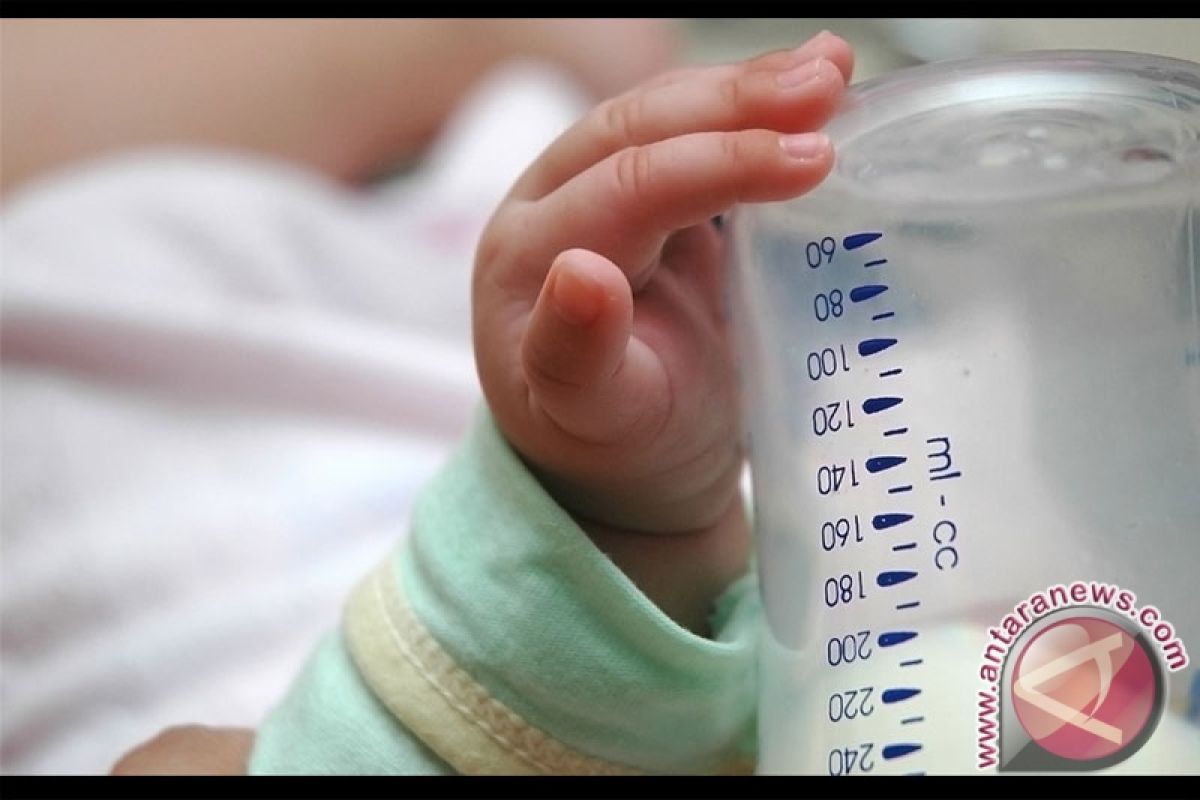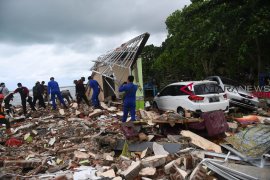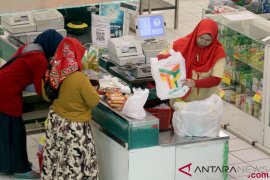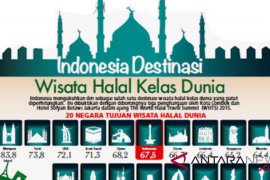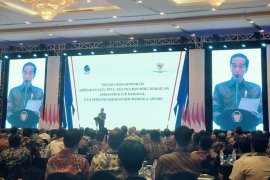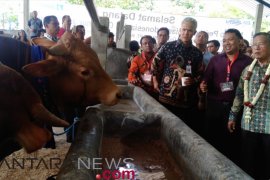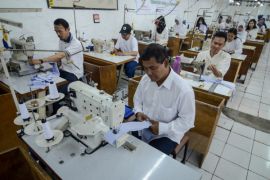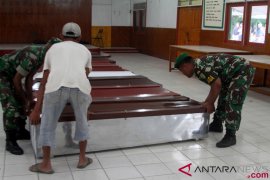"When we conducted research and tests on samples of all brands of formula milk circulating in Indonesia in 2011, we did not find any brand that was contaminated by Enterobacter Sakazakii bacteria," Trihono, head of the research and development center of the Health Ministry, said on Friday.
The results of the tests were made public in a joint press conference with Food and Drug Supervision Agency (BPOM), Bogor-Institute of Agriculture (IPB) and the Attorney General`s Office.
The three institutions (the ministry, BPOM, IPB) were ordered last year by the Supreme Court (MA) to make public the results of tests by IPB on formula milk which it found that some of the samples were contaminated by Enterobacter Sakazakii bacteria.
The IPB conducted the tests on the samples of infant formula milk taken between 2003 and 2006 and found that 20 percent of the samples were contaminated by Sakazakii bacteria. However, the brands of the tainted milk have never been made public.
Thus, the brand names of the baby milk remained unknown to the public and caused unrest among mothers whose babies consumed formula milk.
Virtually, cases related to infections by Enterobacter Sakazakii bacteria are rare, where the World Health Organization (WHO) only recorded 48 infants infected with the bacteria within the period of 1961 and 2003.
"We have no report on the case so far in Indonesia," Health Minister Endang Rahayu Sedyaningsih said recently. She said that Sakazakii bacteria were particularly dangerous to infants aged below 28 days, born with low weights, born prematurely and those with unstable conditions. The bacteria can easily be killed in 15 seconds with hot water of about 70 degrees Celsius.
Yet mothers remained worried. Therefore, last February, the House of Representatives (DPR) urged the government to announce the names of the tainted milk.
"We urged parties mentioned in the Supreme Court`s verdict to immediately make public the results of the IPB research on formula infant milk which was circulated in the market within the period of 2003 and 2006," Ribka Tjiptaning, chairwoman of the House`s Commission IX on health affairs said.
Previously, David Tobing, a resident, has sued the IPB at the Supreme Court, demanding that IPB release the brands of the spoiled milk. The Supreme Court in 2010 ruled in favor of David and issued a verdict ordering the Health Ministry, the Food and Drug Supervision Agency and IPB to announce the brands of the contaminated milk.
However, so far, the IPB remained silent over the results of its study which found that the samples of infant milk it took in 2003 - 2006 were contaminated by sakazakii bacteria.
The institutions opted to conduct more tests on the products produced more recently, instead of naming the brands of tainted milk whose samples were taken in the 2003 - 2006 period.
Therefore, the BPOM conducted tests on the samples of the same product taken from 2008 to 2011 and announced that it did not find any contamination by Sakazakii bacteria. Of the samples, 96 were taken in March 2008, 11 in 2009, 99 in 2010 and 18 samples were taken until February 2011.
With regard to the results of the tests, the Indonesian Consumers Institute (YLKI) said that basically the tests should satisfy consumers, yet they also needed explanations to eliminate their concern.
"It is no longer relevant to talk about brands of 2003-2006. Yet, to eliminate concern among parents whose infants consume formula milk, the government must focus on explaining the impact of the bacteria on the development of babies," said YLKI chair person Husna Zahir.
In an effort to ascertain consumers, the government once again announced on Friday the results of its latest tests on all brands of milk circulation in the country.
Trihono said that the samples were taken both from traditional and supermarkets throughout Indonesia by the BPOM during the March - April 2011 period. The tests were conducted on the samples of 47 brands, both imported and domestically produced milk.
A total of 183 samples were tested in three laboratories, of which 59 samples were tested in the research and development of the health ministry, 60 samples at the BPOM and 64 others were tested in the Bagor-based Institute of Agriculture laboratory. And none of the samples contained the Enterobacter Sakazakii bacteria.
"We are asked to carry out the Supreme Court decision but we cannot do that. As a way out we offered to conduct a repeated test on all brands of milk formula circulating in Indonesia in 2011," Health Minister Endang Rahayu Sedyaningsih said at the joint press conference on Friday.
However, from the legal aspect based on the MK verdict, the three institutions had the obligation to reveal the brands of the tainted milk.
Therefore, health ministry and BPOM will file a judicial review of the MA verdict which orders them to disclose the brands of 2003 - 2006 milk samples that were contaminated by the bacteria.
Director for Civil Case at the office of the Junior Attorney General for Civil Case and State Administrative Affairs, Faithoni said at the joint press conference that there was still a way to file a judicial review (PK) of the MK verdict.
"We cannot yet carry out the MA verdict," said Faidhoni.
The Attorney General`s Office will represent the Health Ministry and BPOM in the fight against the lawsuit of David Tobing who asked the health ministry, BPOM and IPB to make public the contents of the IPB tests on the tainted formula milk.
The legal fight is intended to postpone the execution of the MA order because the health ministry and BPOM have no data about the samples because it was an independent test by the IPB.
(Uu.A014/HAJM/S012)
Reporter: by Andi Abdussalam
Editor: Priyambodo RH
Copyright © ANTARA 2011
